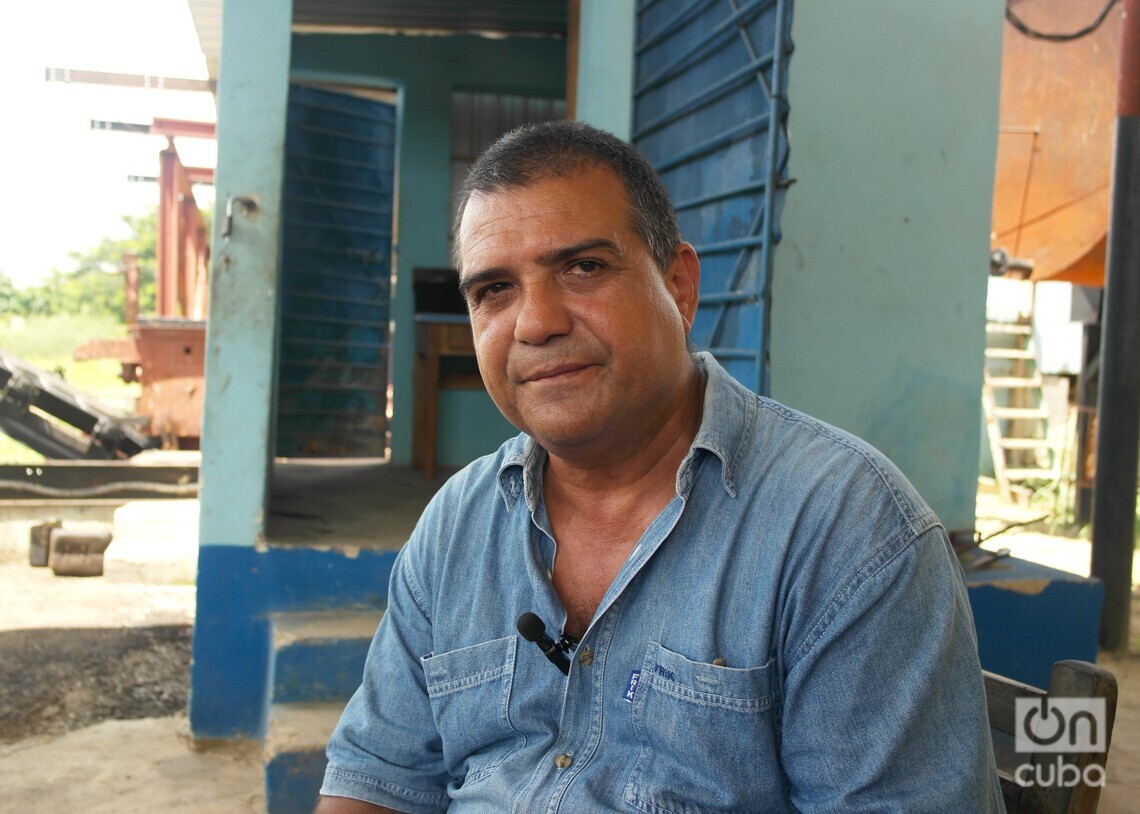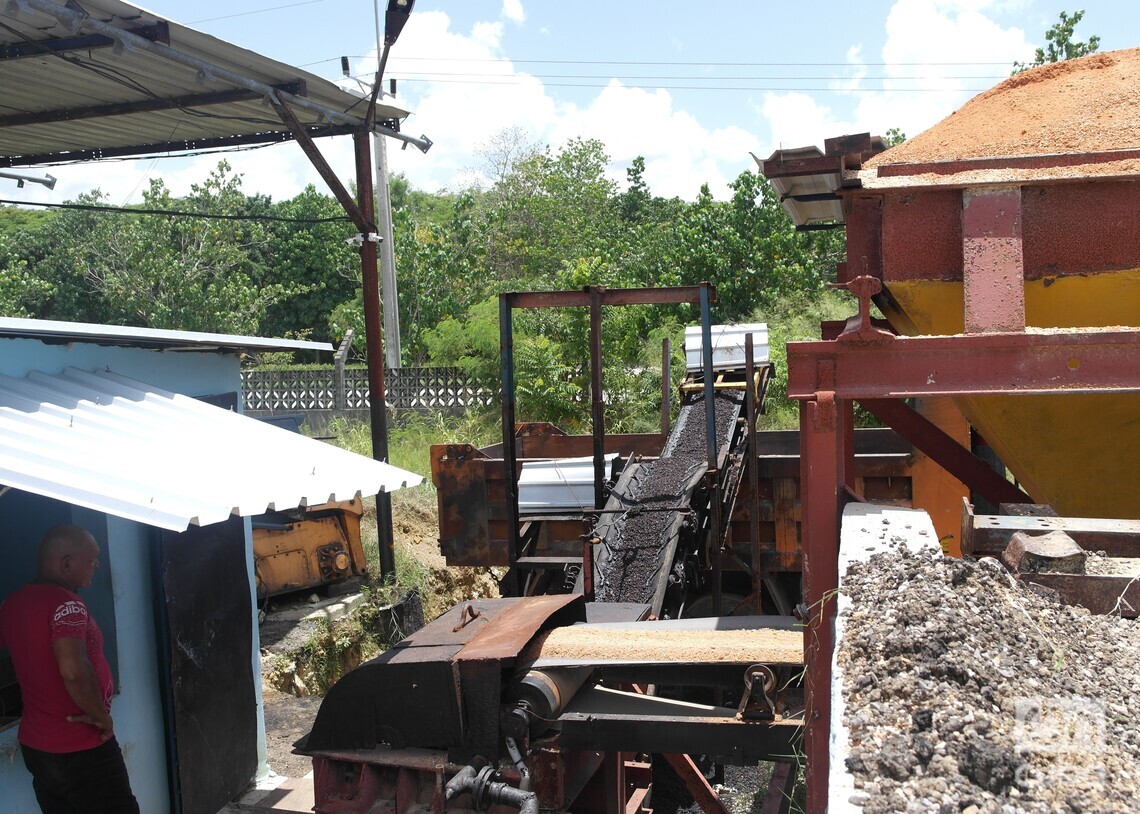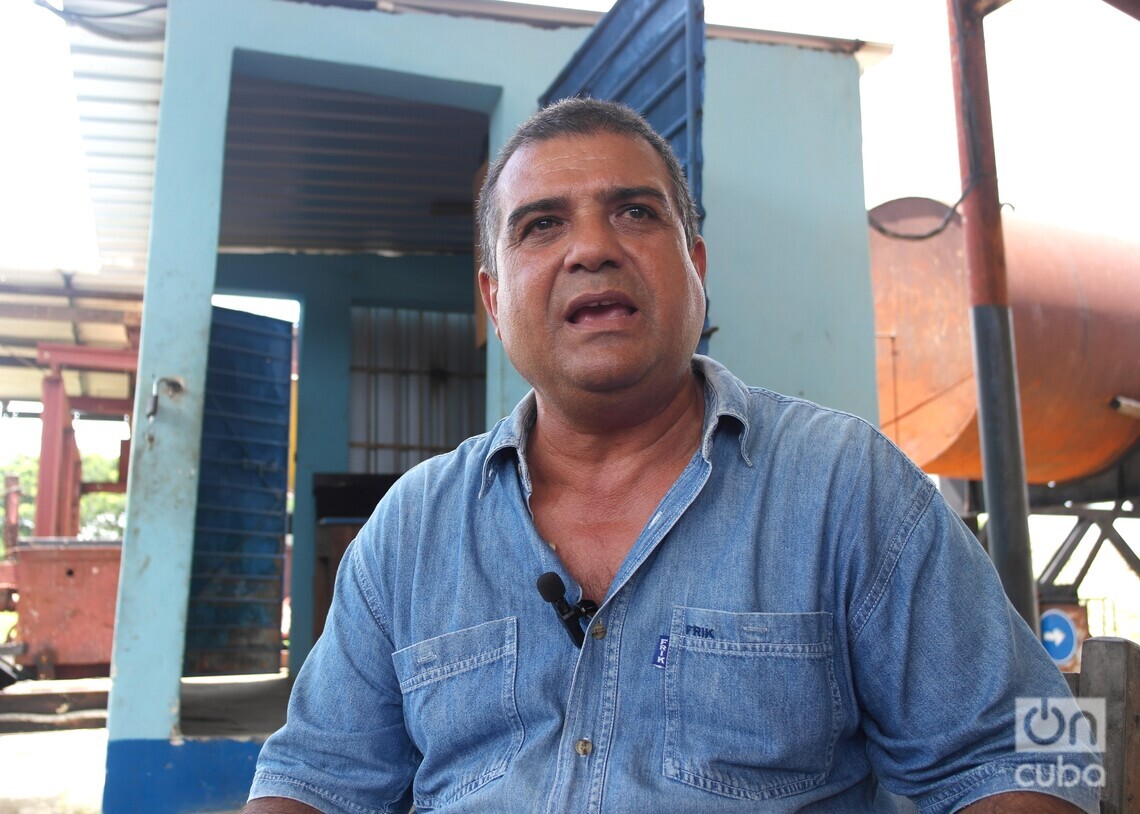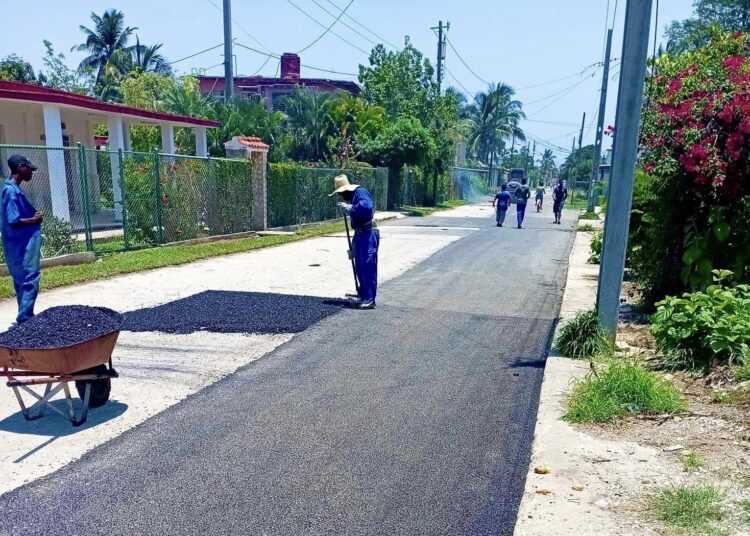Founded in 2021, after the opening to the private sector in Cuba, the enterprise Andal maintains a public-private alliance that benefits the population of the capital.
Ortelio Martín, its president, dared to accept the challenge proposed by the authorities to venture into road repair almost three years ago. He transformed his construction materials manufacturing business into a small industry that produces cold-mix asphalt and has a brigade for “pothole repair.”
Andal received the required permits to operate and carry out repair work on secondary streets, given the interest of the capital’s government.
“The private sector had never participated in this way in the repair of roads in Cuba,” acknowledged Martín, who told OnCuba that the path to achieve this was not free of obstacles.

However, the will of the authorities to carry out this experiment prevailed, from which seven other similar ones have emerged in Havana.
Andal, being the first, was given an old construction site in the municipality of La Lisa to build a cold-mix asphalt production plant.
Martín said that this factory was built using recycled materials and they had to ask the bank for two loans to be able to finish it.
They were also able to contract the services of suppliers of aggregates and asphalt liquid. The same ones that supply the state enterprises dedicated to road maintenance.
Obstacles
Andal is in the small group of private enterprises to which the government assigns a certain amount of fuel. In this case, 400 liters per month.
However, its owner, Ortelio Martín, warned that the supply depends on the availability at the time and that it is sold at retail prices.
The entrepreneur stressed that the transportation logistics behind this business are demanding.
“The stone dust for use in asphalt, which is stipulated to be used due to its physicochemical characteristics, is in Alacranes, in a quarry in Matanzas. Just to go and get the aggregate, 150 liters of fuel are needed. I have a production of 200 tons per day that needs 60 cubic meters. That would be three trips. Not counting the other raw materials needed,” Martín exemplified.
He argued that it is not economically sustainable to use fuel on the black market, because the main client of his enterprise is the State and the budget is based on the amount it can pay.

Another difficulty is access to equipment. Until now, Andal has had to rent equipment from state enterprises, which had already exceeded its useful life and were in deplorable condition. They have had to invest in repair and rent.
“If a state enterprise has broken equipment and does not have the money to get them up and running today, when will it be able to do so? If someone has the money to buy it, why not sell it?” reflected Martín, who also regretted that there is no financing available to obtain new equipment and access to better technology for asphalt.
The monetary factor also plays a role in the logic of equipment repair. As Ortelio explained, the acquisition of spare parts is fundamentally in foreign currency, which cannot be recovered from the results of its production and there is no official exchange market on the island. Another challenge.
No incentives
These difficulties are a brake on venture run by Martín, who explains that, if he did not have such a complicated situation with access to fuel, he would double his portfolio of projects, which today reach 15 million pesos, with works in four Havana municipalities.
In addition, he regretted that, despite being a business dedicated entirely to production, with a factory that does business with a state road enterprise and an MSME, there are no benefits for entrepreneurs like him.
“There is no incentive for production, the same taxes for everyone, even us who take on a state commission. We do not have access to foreign currency. They measure everyone with the same yardstick,” he commented.
“The private sector needs all the tools and mechanisms that the market has to develop. It is called to be a driving force for national development, but it is not yet seen with that intensity, unfortunately. If there were a bolder policy with the private sector, the State would gain more,” he affirmed.

Martín hopes to scale his business, which currently produces 1,500 cubic meters of asphalt per day, to a national level. To make that dream come true and sustain the life of his enterprise, he has diversified his clients and not only does business with the state sector but also offers his service to other MSMEs that want to improve the environment where they work. This guarantees him access to payment in foreign currency.
Despite the circumstances surrounding his venture, Ortelio remains optimistic and believes that in the future the role of the private sector in the island’s economy will become more evident.










